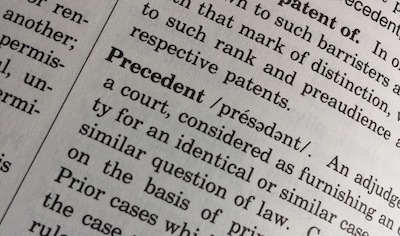Judge McMahon Issues Omnibus Ruling Addressing Numerous Procedural Issues Arising Out of Pre-Trial Motions | Patterson Belknap Webb & Tyler LLP
On September 20, 2023, Judge McMahon (S.D.N.Y.) issued rulings on the parties’ multiple motions to strike, exclude the opinions and proposed testimony of multiple experts, and for summary judgment in a case brought by Geigtech East Bay LLC (“Geigtech”) against Lutron Electronics Co. (“Lutron”) for trade dress infringement, unfair competition, and patent infringement.
Earlier, on February 2, 2023, Geigtech moved for summary judgment on certain Lutron counterclaims and affirmative defenses. On February 24, Geigtech filed a second summary judgment motion that partially overlapped with the first. The Court explained that Second Circuit and Southern District law is clear that it is improper for a party to file successive motions for summary judgment which are not based upon new facts and which seek to raise arguments that the movant could have raised in its original motion. The Court ruled that the issues raised in Geigtech’s first motion, but not the second, were abandoned, and went on to rule on the issues raised in the second motion.
With regard to each parties’ motion for summary judgment, the Court explained that there are genuine issues of material fact relating to nearly every aspect of the case with one exception: Plaintiff’s motion for summary judgment dismissing Defendant’s affirmative defense of equitable intervening rights. The Court explained that the doctrine of intervening rights was developed by courts to remedy the potential injustice where a third party, having already begun to make, use, or sell a given article, finds its previously lawful activities rendered infringing under a subsequently modified patent. The Court granted the motion on the ground that the defense is available against only reexamined or reissued patents (codified in the reexamination and reissue statutes, at 35 U.S.C. §§ 252, 307(b) and 316(b)), while this case involved a continuation patent.
Geigtech also moved to exclude Lutron’s experts’ opinions concerning non-infringing alternatives (“NIAs”). It argued that because Lutron bears the burden of proving the existence of NIAs, its experts should have disclosed their opinions on NIAs in opening expert reports, instead of only in their rebuttal expert reports. The Court denied the motion, noting that Lutron disclosed the potential NIAs during fact discovery, Geigtech deposed Lutron’s experts about the potential NIAs, and Geigtech’s experts addressed the potential NIAs in their own opening experts. Thus, the Court concluded, there was no surprise, no sandbagging, and no failure on Lutron’s part to disclose the potential NIAs.
Geigtech also moved to strike Lutron’s expert’s testimony about NIAs on the ground that the record evidence does not support the expert’s opinions. The Court denied the motion to strike, crediting Lutron’s argument that the motion was not a proper Daubert motion, but instead, in effect, a third motion for summary judgment. The Court explained that Geigtech’s arguments for exclusion were based on disagreements with the expert’s conclusions and the factual assumptions and considerations underlying those conclusions, not with the expert’s credentials or methodology.
Geigtech also moved to exclude Lutron’s expert’s opinions concerning noninfringement and invalidity on the ground that the expert did not qualify as a person of ordinary skill in the art (“POSITA”) using the expert’s own definition of that term. Geigtech argued that the expert’s definition of POSITA requires 1-2 years of experience designing or installing powered roller blinds or 3-4 years of designing electro-mechanical consumer products, neither of which Lutron’s expert had. Lutron argued that its expert’s significant additional qualifications, including advanced degrees in mechanical engineering, experience offering expert testimony for patent infringement suits, and 3-4 years of experience in designing electro-mechanical products, sufficed. The Court agreed with Lutron, noting that there is a sufficient relationship between the expert’s significant relevant technical expertise and the patented technology (i.e., a bracket).
Lutron, for its part, moved to exclude Geigtech’s expert’s opinions regarding infringement on the grounds that the expert ignored the Court’s claim construction of a particular claim term and ignored the claims’ express requirement as to another claim term. The Court agreed and granted Lutron’s motion. Lutron also moved to exclude the expert’s opinions regarding validity and enforceability on the grounds that the expert selectively cited certain documents provided to her by Geigtech’s counsel and that the expert drew conclusions based solely on the provided documents. The Court denied the motion, noting that Lutron failed to identify any documents it believed the expert should have considered. The Court went on to explain that in any case, the existence of alternative factual scenarios that an expert has not considered goes to the weight and credibility of the expert’s testimony, and not its admissibility.
Case: Geigtech East Bay LLC v. Lutron Elecs. Co., No. 18 Civ. 05290 (CM), Dkt. No. 308 (S.D.N.Y. Sep. 20, 2023)






